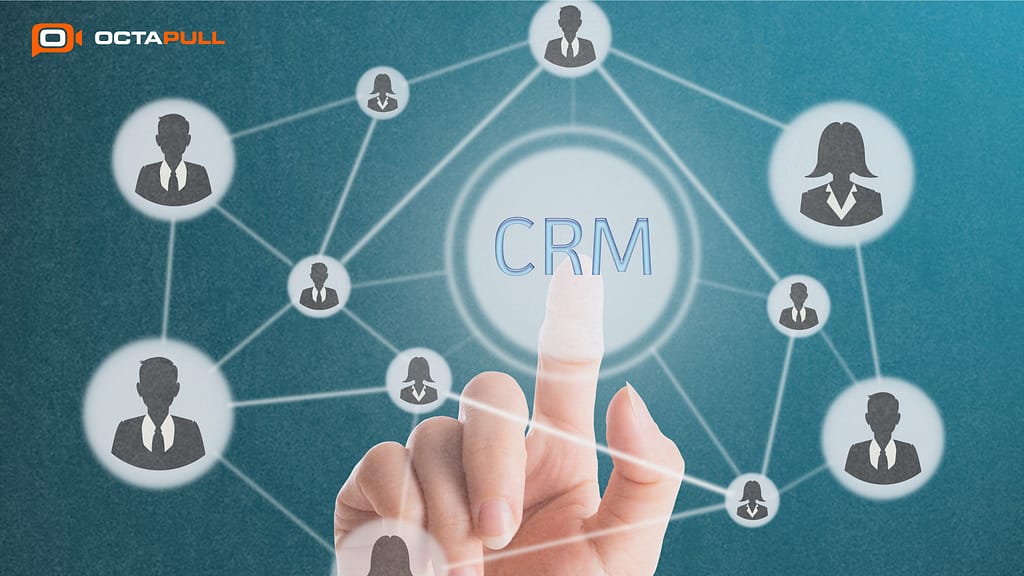CRM involves everything related to the customer’s perspective, with the aim of getting to know them better and ensuring their happiness and satisfaction.
It consists of a diverse set of strategies, processes, and technologies, all aimed at one central objective: to build long term and mutually benefited business relationships with the clients.
CRM Fundamentals

What is CRM?
CRM (Customer Relationship Management) is defined as a process and strategy for managing customer relationships. Its primary purpose is to establish successful and long-term relationships with customers to increase customer satisfaction and improve business profitability.
CRM involves collecting and analyzing customer data to understand customers’ needs better.
The Importance of CRM
CRM offers numerous advantages to companies, including:
1. Customer Satisfaction: CRM leads to increased customer satisfaction and greater customer loyalty. This is achieved through enhancing the customer experience at large and meeting their requirements.
2. Data Analytics: Thanks to analyzing data, business CRM assists in understanding customers’ behavior and thus gives business an opportunity of personalizing their marketing campaigns.
3. Sales and Marketing Efficiency: CRM plays a vital role in boosting efficiency in sales and marketing initiatives. It offers a means of capturing consumer insights, tracing down prospective clients, and developing profitable promotional schemes.
4. Loyalty and Customer Retention: Good CRM ties customers together, making them come back for more and generating good word of mouth.
The Power of CRM Software
CRM system allows managing customer relationships and their information. Here are the key features of CRM software:
Customer Database: Integrated databases for storing customer data, including past and present contacts, choices, and other details are stored in the CRM software.
Contact Management: Communication is simplified through phone calls, e-mails etc., where the records of each interaction are noted.
Sales and Marketing Automation: CRM automates sales process tasks, identifies prospects, keeps sales pipeline.
Data Analytics: Through the use of CRM software, organizations can analyze customer’s information in order to reveal their preferences.
Mobile Access: Modern customer relation management software allows access and edit of customer data on the mobile phone thus improving customer service and business operational process.
CRM software helps businesses in adopting customer essential approach which improves customer service resulting into increased customer loyalty thus improved operation of their business.
The Benefits of CRM Software
CRM is more than just the software. It is a way of dealing with customers. Customer engagement is a dynamic interplay involving the human element, well-defined processes, and enabling technologies that constitute its essence. CRM software plays a crucial role in this processes.
Creating Meaningful Customer Interactions
In essence, Customer Relationship Management (CRM) revolves around establishing meaningful and strong bonds that exist among customers and businesses.
Developing personal connections creates loyalty, trust and satisfied customers, which form the basis of long-term relationships.
Data Analytics and Personalization
Data analytics forms the basis of CRM, whereby an organization gathers data to know the customer’s behavior and tastes.
This data helps in following product, service, or marketing to that particular market in question. There are two main advantages of data analytics.
The first one refers to customization and gives an opportunity of modifying the products that customers’ preferences and the second refers to personalization and is about developing a special product for customers’ requirements.
To create lasting ties between customers and business, build trust in products or services and make customers feel esteemed.
Strategic Relationship Management for Lasting Customer Bonds

Strategic relationship management involves a systematic and purposeful approach to nurturing and maintaining customer relationships. This approach involves several basic steps:
Strategic Relationship Management: Forging Lasting Customer Bonds
Strong customer relationships can play a pivotal role in business in today’s dynamic world. The sustainability of any business depends on getting new clients but also keeping the current ones. This is where strategic relationship management (SRM), an elaborate and intentional way of building enduring customer relationships, comes handy.
Segmentation: Catering to Unique Needs
The segmentation (the first stage of SRM) helps you group your customers according to types and groups that they like to buy a specific product or service. This is how firms are able to realize that not all clients have similar needs.
This will enable you to customize what you provide according to their individual preferences which will increase customer satisfaction and hence loyalty towards them.
Customization: Tailored Offerings
It is very important to personalize your communication for every customer segment after classifying them. Marketing strategies as well as messages used may not resonate equally with different customer segments.
This enables you to engage in individualized communication aimed at every segment, resulting in better efficiency of customer relationship management practices.
Feedback Loop: Continuous Improvement
Feedback is an important input of SRM. You can learn about what works for the clients and why it does not work by setting up the feedback mechanism.
When you proactively listen and act upon your customer’s complaints, you can fine-tune your products and services for better relevance to your target audience.
Adapting to Change
Customer trends are changeable and ever evolving as well the external business environment is fluid. It is important to change your strategies based on the feedback of customers and changing markets to gain long-lasting customer attachment.
Being flexible and agile ensures your business stays relevant and continues responding to existing customers’ dynamic needs.
Long-Term Perspective: Prioritizing Relationships
SRM is characterized by efforts aimed at creating connection that transcend present gains. Building customer relationships in pursuit of long term relationships which ultimately leads to creating loyal customers that spread the word about your business for you.
Giving importance to such relationships will result in the formation of a regular consumer base which allows companies to move ahead during good and bad times.
The application of such approaches while focusing on the formation of relationships will help to promote stronger ties with consumers that eventually lead the company to make profit in the long term.